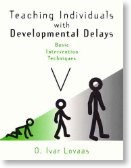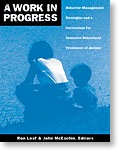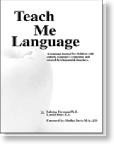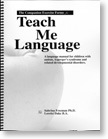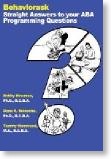The Perverse Incentive to Stay Unemployed
02/09/11 18:10
As parents who engage in a herculean effort (on a daily basis) to provide treatment for our children with the goal that they will eventually enter the workforce and ultimately be taxpayers, I have some sobering news for you: the incentive structure that some government bureaucracies create is so warped that you actually have to go against your child’s economic self interest to help your adult child join the workforce. Huh...? Yes, you read that correctly! Let me put it simply: It is against your child’s best interest to join the workforce even if s/he has a skill. Allow me to explain:
Most western societies understand that someone who is disabled may need some kind of financial support as an adult. In some countries, the disabled are grouped together with welfare recipients and must interact with the bureaucracies that are structured to serve the poor, rather than the disabled. In other countries, the disabled are not lumped together with poor people, but rather, have separate departments to address their particular needs. Either way, the moment a disabled person lands a job, very quickly the amount of government-provided income is decreased, or in the vernacular, “clawed back.” In some jurisdictions, once the person makes more than $500 a month, the claw back begins. How patently absurd is that!
What bureaucrats do not understand is the following:
1) It is much more expensive to be disabled; therefore, due to increased expenses, it is harder to take the risk of securing a job, as compared to the non-disabled welfare recipient. This is the case even if the job may eventually lead to a promising career. The government guaranteed income may be low, but at least it’s guaranteed -- whereas a job is not;
2) For potential entrepreneurs (or the entrepreneurial family of a disabled, talented person), it is against their economic best interests to help set up a business, because most businesses may not make any profit for the first few years. Over the first two years of a new business venture, the disabled person (or his/her family) may be in a net loss position of over $24,000 of foregone, government-provided income.
In addition, there are many well-meaning people in society who would love to offer a disabled person an entry-level job; however, it actually makes more economic sense for that person to volunteer, and keep the guaranteed income! That’s crazy, and needs to be changed.
In the case of autism, the issue is amplified. Although many people with autism may be quite capable of out-performing typically developing workers on a variety of tasks, they may still need some kind of support on the job (which costs money). That said, there is a) dignity to receiving a pay check, and b) value to opening the door to more opportunity with newly created connections from the workplace. So..., what’s a bureaucracy to do? It is simple:
Accommodate the increased expenses that someone disabled must incur by not clawing back any guaranteed income. The more money they make, the more tax they will pay. The incentive should be to make more money, not less!
We live in an amazing age where computers can give disabled people the access to high paying jobs: let’s remove perverse incentives created by government policy so disabled people will have unfettered opportunity to reach their full economic potential!
Most western societies understand that someone who is disabled may need some kind of financial support as an adult. In some countries, the disabled are grouped together with welfare recipients and must interact with the bureaucracies that are structured to serve the poor, rather than the disabled. In other countries, the disabled are not lumped together with poor people, but rather, have separate departments to address their particular needs. Either way, the moment a disabled person lands a job, very quickly the amount of government-provided income is decreased, or in the vernacular, “clawed back.” In some jurisdictions, once the person makes more than $500 a month, the claw back begins. How patently absurd is that!
What bureaucrats do not understand is the following:
1) It is much more expensive to be disabled; therefore, due to increased expenses, it is harder to take the risk of securing a job, as compared to the non-disabled welfare recipient. This is the case even if the job may eventually lead to a promising career. The government guaranteed income may be low, but at least it’s guaranteed -- whereas a job is not;
2) For potential entrepreneurs (or the entrepreneurial family of a disabled, talented person), it is against their economic best interests to help set up a business, because most businesses may not make any profit for the first few years. Over the first two years of a new business venture, the disabled person (or his/her family) may be in a net loss position of over $24,000 of foregone, government-provided income.
In addition, there are many well-meaning people in society who would love to offer a disabled person an entry-level job; however, it actually makes more economic sense for that person to volunteer, and keep the guaranteed income! That’s crazy, and needs to be changed.
In the case of autism, the issue is amplified. Although many people with autism may be quite capable of out-performing typically developing workers on a variety of tasks, they may still need some kind of support on the job (which costs money). That said, there is a) dignity to receiving a pay check, and b) value to opening the door to more opportunity with newly created connections from the workplace. So..., what’s a bureaucracy to do? It is simple:
Accommodate the increased expenses that someone disabled must incur by not clawing back any guaranteed income. The more money they make, the more tax they will pay. The incentive should be to make more money, not less!
We live in an amazing age where computers can give disabled people the access to high paying jobs: let’s remove perverse incentives created by government policy so disabled people will have unfettered opportunity to reach their full economic potential!


